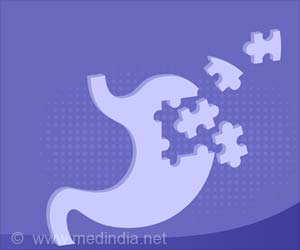Researchers at the University of Pennsylvania School of Medicine have discovered a new target for the muscular dystrophy drug therapy.
Researchers at the University of Pennsylvania School of Medicine have discovered a new target for the muscular dystrophy drug therapy.
The researchers have found how the gene for utrophin-which codes for a protein very similar to dystrophin, the defective protein in Duchenne muscular dystrophy (DMD)-puts the brakes on its own expression in muscle cells.The production of utrophin slows in foetal muscles soon after birth, following which dystrophin takes over as the primary muscle-associated protein. How this normal utrophin silencing occurs has been a mystery for long, according to the background information in an article published online in Molecular Biology of the Cell.
Dr. Tejvir S. Khurana, Associate Professor of Physiology and Member of the Pennsylvania Muscle Institute, says the removal of silencing by drug intervention may help increase utrophin expression, which in turn may substitute for dystrophin as a possible therapy for DMD.
Experiments on mice have now shown that utrophin silencing is applied by a protein called Ets-2 repressor factor (ERF) sitting on a small piece of the utrophin gene called the N-box.
"We demonstrated that ERF significantly reduces or represses the activity of utrophin's N-box in muscle cells of mice," says Dr. Tejvir S. Khurana, 7senior author of the study.
During the study, the researchers noted that ERF did not have any effect on utrophin silencing when the N-box was deleted from the utrophin gene. They also observed that utophin mRNA production increased when ERF was repressed.
Advertisement
Since the gene sequence of utrophin is over 80 per cent identical to that of dystrophin, it may substitute for dystrophin in muscle cells, says researchers.
"We have worked on this problem for a number of years, and our current findings are a logical incremental step in understanding how utrophin could become an effective tool for treating DMD," states Dr. Khurana.
Source-ANI
LIN/M









